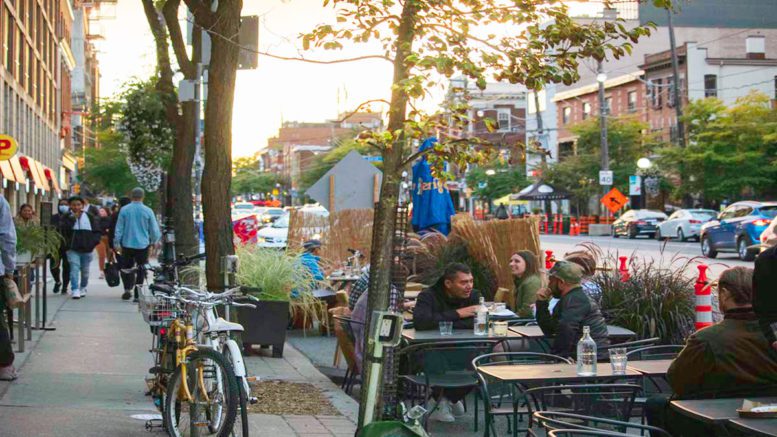New daily COVID-19 cases have been on the steady increase in Ontario through September. Today the province has recorded 700 new cases with 344 in Toronto.
Despite Premier Doug Ford confirm the province is in fact in our second wave of the virus, no new limitations have been announced.
So far, strip clubs have been the only businesses forced to close and indoor gathering numbers have been reduced to 10 people and outdoor gatherings from 25.
Young people and social gatherings are being blamed for the new increases as people under 40 represent 60 per cent of the new cases according to Minister of Health Christine Elliot.
Biostatistician and high school teacher Ryan Imgrund has been studying and predicting COVID-19 cases, and releasing daily data graphics on his twitter since April.
He emphasized in a phone interview that this rapid increase of cases is not at all a surprise. He saw the trend coming back in July but, says we need to take serious actions soon and move past blaming young people.

Imgrund said there need to be clearer guidelines, as well as messaging as to how this new trend will manifest, if more serious intervention isn’t taken soon.
“We just need to understand that cases in the younger generation are going to drive growth in the older population,” Imgrund said. “And when the older population gets sick, that’s what drives hospitalizations, that’s what drives increased ICU utilization, that’s what requires more ventilators, and that’s what will inevitably lead to more deaths as well.”
Science communicator and neuroscientist Samantha Yammine who’s recent focus has been breaking down COVID-19 data and information on social media, where many public health agenices have been absent.
Yammine also believes the province should also be bracing and taking action for the reality that the cases within young people will likely spread to older generations, which was seen earlier in Florida and Marseilles, France.
Yammine, who goes by Science Sam on social media, ran an informal survey through her instagram last week where she asked her 20-something followers what they were finding the most difficult over the pandemic.
In an attempt to try and shed a light on the fact that many young people actually do care a lot about keeping themselves and those around them safe, there are just some factors that are keeping them from doing things “perfectly.”
Many of the survery responses featured issues with how they could continue to live their lives and basically survive without breaking the safety guidlines. Some of the most common issues were that they were forced to go back to work, sometimes in unsafe working conditions, as well as problems with maintaining a small bubble when living in a multigenerational home or with roommates.
Yammine said that in order to minimize the spread of the new COVID-19 cases in younger people to the older generations, we need tighter bounds on what’s allowed and better communication, especially on the many grey areas that her survey revealed in part.
Malika Whelan, a 23-year-old masters student at Trent University, understands some older people may be frustrated with young people, but she wants them to know not everyone in her generation is being reckless right now.
“I think it’s easy to place blame and I get it, but, in the end where does that really get us?” she said. “I think if you are going to place blame though, it should be placed collectively.”
“This is a global pandemic, people of all ages and demographics haven’t been doing their part,” Whelan said.

